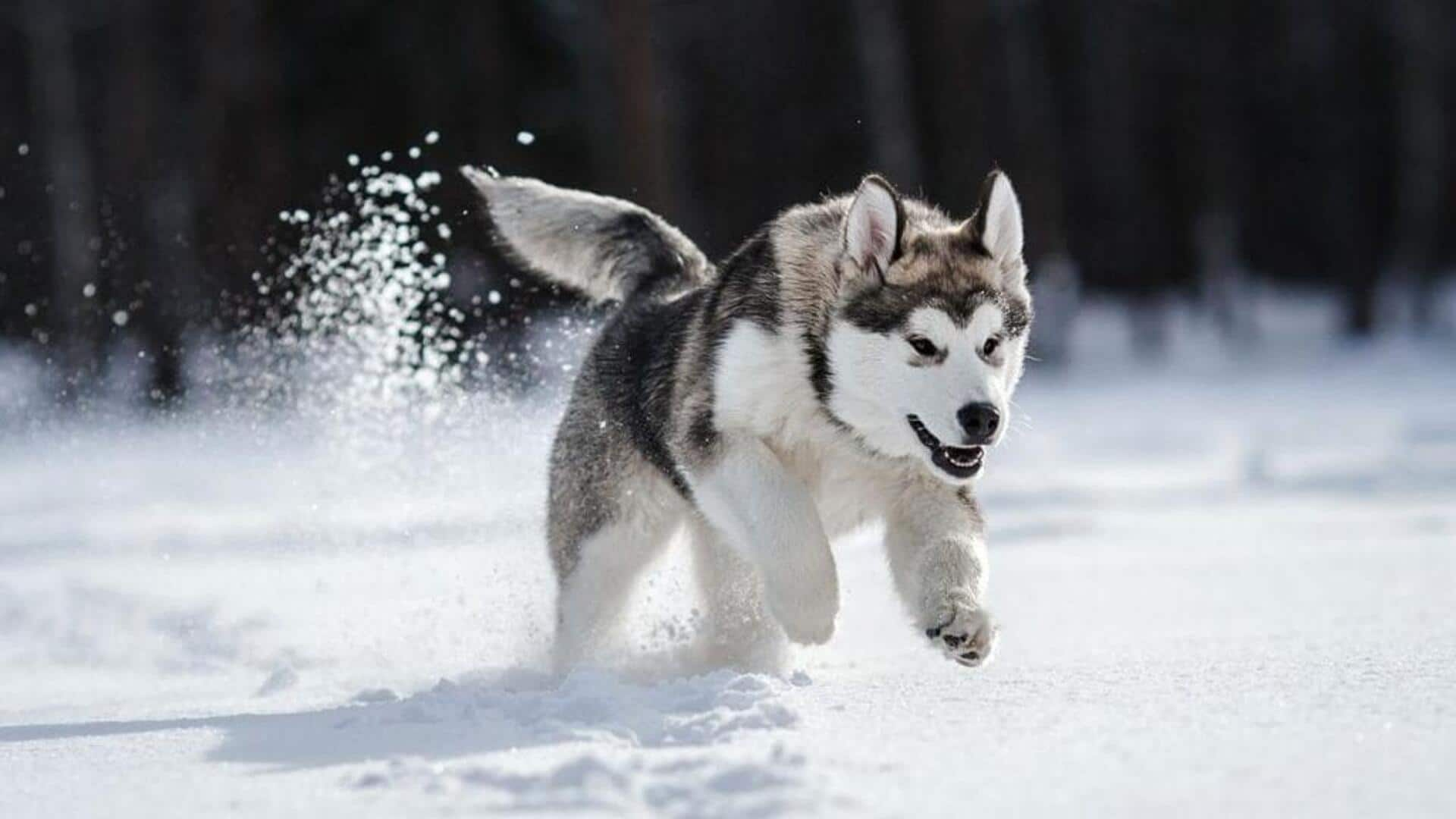
Siberian Huskies' winter care tips their owners should know
What's the story
The Siberian Husky is a breed celebrated for its remarkable endurance and natural adaptation to cold climates. With a dense double coat that insulates them from icy temperatures, these dogs hail from northeast Asia and are well-equipped for life in severe winter conditions. Despite their resilience, Siberian Huskies still require dedicated care to ensure their well-being throughout the winter season.
Tip 1
Maintain proper shelter
Siberian Huskies are well-suited to chilly environments, yet they must have access to a warm, dry shelter for extreme weather. Their outdoor home should be well-insulated, protected from drafts, and raised above the ground to avoid moisture. The bedding within should be kept dry and must be replaced regularly to ensure a cozy and comfortable resting place for the dog.
Tip 2
Adjust feeding routines
During the colder months, Siberian Huskies often need increased caloric intake as they expend more energy to maintain body warmth. It's important to keep a close watch on your dog's weight and level of physical activity, making necessary adjustments to their diet. To ensure hydration, always provide a supply of fresh water in a nonmetallic bowl, which helps prevent the water from freezing over.
Tip 3
Grooming is key
Essential winter grooming for your Siberian Husky involves regular brushing, ideally several times a week, to prevent matting and promote the even spread of natural oils, crucial for insulation. Additionally, trimming the fur between their paw pads is important to avoid the accumulation of ice, which can be harmful and uncomfortable for your dog during cold weather.
Tip 4
Exercise with care
Siberian Huskies require consistent exercise, even in winter. To safeguard against the harsh cold, it's advisable to shorten their exercise sessions. Protective gear, such as booties, should be used to shield their paws when navigating salted pathways or snowy terrains. Post-exercise, it's crucial to inspect their paws for any signs of damage like cracks or sores that can result from the cold weather exposure.
Tip 5
Monitor health closely
In the winter, Siberian Huskies may face heightened joint issues like arthritis. Monitor for any behavioral signs of pain or hesitance to move, as these may be symptoms of discomfort. Regular veterinary visits are crucial for managing such conditions, which tend to worsen in cold weather. These check-ups help ensure your husky's health and comfort during the chilly season.